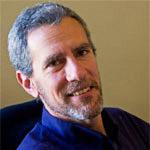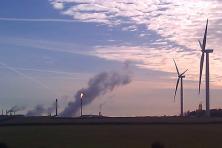Breathe a little, planet. Shell’s reckless Arctic drilling escapade is finally over, “for the foreseeable future.[1]”
Wha- wha- what happened? After all that work, investment, and kayak-dodging, why did Shell quit the Arctic after drilling a single well? The harder question is why in the world they kept at it as long as they did. It cost them $7 billion to figure out that Arctic drilling never made a nickel’s worth of sense. The wonder is that investors let it drag on til now.
Yes, the steep decline in world oil prices came as a surprise to many—but it’s not as though Shell didn’t know there was a lot of cheap oil out there, yet to be burned. They weren’t betting that we’d leave all that low-cost oil in the ground and use their expensive Arctic oil instead. They were betting we’d burn through all the cheap stuff, fail to develop alternatives, sleep through the intensifying climate crisis, keep their grip on enough political power to forestall climate policy, and let them keep siphoning our energy dollars for another 50 years. They were counting on our open-ended willingness to keep burning more and more and more, no matter the costs or consequences. They thought we’d never break up with oil.
And of course, we haven’t, quite, yet. So what DID happen? Predictably, Wall Street journalists—eager to dismiss the effect of intensifying public opposition to fossil fuel development – said it was mostly market forces, doing their thing... just a business decision, they insist – necessary retrenchment in the face of soft markets and low prices.
But what does that mean, and again, what really changed? Yes, prices dropped, but Shell certainly understands the sheer amount of oil currently available for inexpensive extraction—and the effect of that supply on the commercial prospects for Arctic oil. Shell knew the world was awash in cheap oil, and that we’d have to exhaust it (or expect to exhaust it) before Arctic oil might become competitive. What they didn’t know, or couldn’t accept, was that we might change course before we got there.
The argument about whether it was growing public opposition or low oil prices that doomed Shell’s Arctic drilling effort is pointless. In a way, they’re two sides of the same coin. Economically, call it waning demand: As better alternatives emerge and growing economies decouple prosperity from fossil fuel throughput, long-range expectations of growing oil demand fade. Or you can think of it declining public acceptance—the emerging revocation of the oil industry’s social license as its climate consequences become manifest and it trespasses into ever-more vulnerable environments.
Declining demand and growing opposition are mutually reinforcing, and they point in the same direction: the beginning of the end of the Oil Era. And the implications are a lot more far-reaching than this decision to abandon Arctic drilling. The desperate late-stage onslaught of new fossil fuel development and export proposals in the Northwest and around the world are skating on thin ice, financially as well as geophysically. As hard and fast as they came, they are falling nearly as fast.
Before we get carried away, let me emphasize: it’s the beginning of the end of the Oil Era. As abusive as the relationship has become, we’re not about to jilt oil overnight. Defenders of fossil fuel dependence like to pretend that climate activists are insisting that we “abandon all coal, oil, and gas use tomorrow.[2]” No one, other than invented straw-bogey-activists, is suggesting any such thing. The transition will take decades. And while it’s likely to be economically positive on balance, big transitions are never easy or painless. We must approach this one with a laser focus on economic justice, and particularly on addressing the transition needs of people and communities whose jobs and economies are most directly linked to fossil fuels.
But Arctic drilling was never about the oil we will indeed burn tomorrow. It was about selling us expensive oil that would only be economically recoverable on planet Toast: a world where we burn far more fossil fuels than it will take to deny us the possibility of a decent future.
And here is the spectacularly good news that Shell’s retreat seems to affirm: The transition is building steam. Big expensive bets on long-term fossil fuel development are now almost as financially indefensible as they are morally unconscionable. Shell’s decision—like the collapse of the coal industry, the Pope’s encyclical, the burgeoning divestment movement, and the rapid advances in clean energy commercialization—is in some part the climate writing on the wall, become visible. It’s still fuzzy, and maddeningly slow to resolve. But you can get the gist: “CLEAN ENERGY REVOLUTION.”
(You only have to squint a little to imagine that it might be right around a corner or two: 100 miles’ worth of transportation fuel in an affordable [3] electric car costs about $3 today, while 100 miles’ worth of fuel for a functionally equivalent—but slower—gas-powered car costs about $10.[4] Electric buses and trucks are coming of age too. With foreseeable advances in solar and battery technology, and the huge gas price increases that would be necessary to justify development of Arctic oil, that gap would widen considerably. How long will we keep Shelling it out?)
Maybe Shell thought we didn’t have it in us to make this transition. More likely, they knew the jig was up, but they trapped themselves in a financial model in which their worth is a function of their reserves, and their unfettered freedom to vaporize them. At the end, they seemed to be going through the motions, and their Arctic retreat feels pre-programmed… almost as if they were defending their right to explore and extract, long after it made any kind of sense.
Some oil companies, Shell included, have flirted with transforming themselves into “energy companies” and positioning for success in a clean energy transition. One still hopes they might. But with so much of their worth tied to their reserves, extinction may be the only option. The big question still looms: theirs or ours?
Notes:
1. This condition will be read as an expectation that oil prices will remain low for a long time. But even if oil prices rise dramatically, the only scenario in which developing Arctic Oil would be profitable is one in which we burn at least three times more oil than it takes to trigger catastrophic climate disruption. (This Nature piece lays out the math.) This scenario isn’t “unforeseeable” (except in the sense that it’s too ugly to look at); it’s the path we’re on.
2. In what must be a new world record for straw man construction, Chris Vance repeated this claim three times in less than three minutes, shortly after calling for a “serious and sober discussion of climate and energy”.
3. “Affordable,” that is, for those who can afford a car. Better and more universally accessible alternatives to cars are a must.
4. Electricity, of course, isn’t a free lunch, climate-wise. But there are many more promising ways to decarbonize electric power than liquid fuels.





